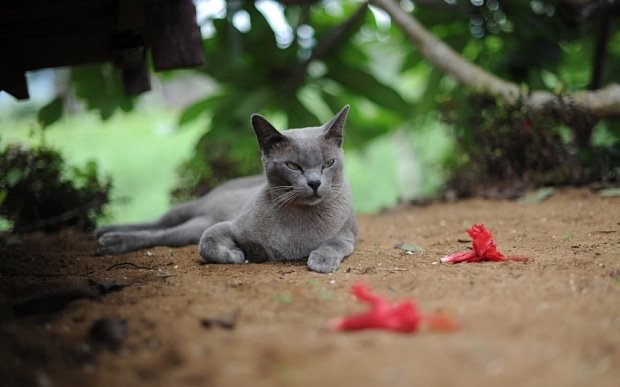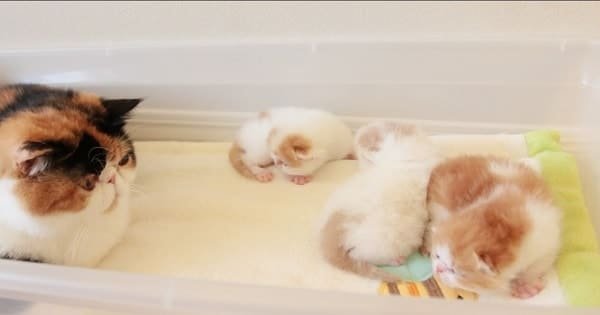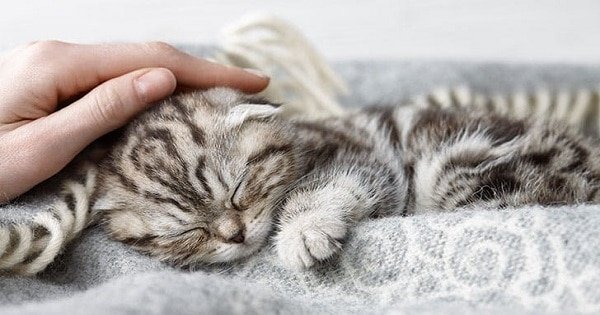They used to sit next to Burmese royalty and guard the entrance to temples and pagodas. But in modern-day Myanmar, as Burma is now known, the country’s most historically famous animal is almost non-existent.
The beautiful, glossily smooth Burmese cat, which comes in shades of blue-grey, chocolate and champagne, and large eyes – disappeared around the same time as the British, when the country gained its independence in 1948. After years of mating with lesser breeds, the silky-haired pedigree lost its purebred status.
However, this is still one local woman, who believes the cats are a key part of her country’s heritage and is determined to give them new life.
“You will laugh, but I hate cats,” says Yin Myo Su, looking down at the pussycats weaving in and around her legs.
“When I was little, kittens near my house would come and hurt my puppy’s nose.”
“I do not like cats,” she repeats, firmly.
Yin Myo Su (known as Misuu) and her 40 cats live on an island in the middle of Inle Lake, which is a major tourist attraction. They live in isolation, away from strays on the mainland, in a bungalow built in the style of the Mandalay Palace, much like the ones which existed in noble history.
The cats receive pedicures. They have their own staff, and Chaw Su, who manages the cat breeding program me, laughs when she is described as their mom.
“She is also their wedding planner, their honeymoon planner and even their family planner,” says Misuu.
They have made a lot of progress since the project began back in 2007, when Misuu, a local hotelier by trade, was approached by a Chinese preservation group about bringing the Burmese cat back. After discussions with the China Exploration and Research Society, the project to reintroduce the species was devised.
Initially, only seven cats were brought to Myanmar from collectors around the world. Four of them came from breeders in Australia, and three were bought at a hefty price from the pet department in Harrods.
“It was a huge responsibility,” says Misuu. “With vaccinations, transportation, vets… these cats cost a fortune.”
Once at the lake, the cats were sheltered on different islands to ensure family members did not interbreed and spoil the programme. “But guess what?” says Misuu. “A tom cat will swim for love…”
Following a few adjustments to the island security, the breeding program has been a success: from just seven cats to dozens.
Burmese cats are said to have existed for more than 1,000 years, appear in myths as reincarnated monks and were even owned by the last king of Burma before his exile by the British in 1885. Famous for their beauty and intelligence, the cats now breed under the watchful eye of Chaw Su. She picks a likely pairing and sets them up for a weekend in the “honeymoon suite”.
The idea is to give the kittens away to Burmese people, many of whom have only heard the old stories of the Burmese cats. To promote the campaign, one of the residents has been given his own Twitter account (@phyuley), and introduced himself to the cyber world with the Burmese greeting: “Mingalabar, interwebs.”
Some of the cats have now been given away to local families, although for many people in this developing country, owning a pet is considered to be a luxury. Foreigners can adopt these precious felines, too, but have to pay $600 – and both kinds of potential owners have to pass an interview with Chaw Su.
The team gave a cat to Aung San Suu Kyi, Burma’s democracy icon, but things did not go over very well. Misuu said, “She has also a dog and he is so possessive. The dog ran after the cat and it had to hide, so we took it back.”
But the project is about more than just putting these cats into good homes, says Misuu. “I see Burma losing the things we have, like jade, and as the country opens up we could do something that would preserve our heritage,” she says.
“People say ‘Why cats?’, but why not?”
Misuu hopes the project will teach Burmese people that their heritage is something to be cherished, even when remembering the recent past can be painful.
“It’s important to go back to your roots. A tree that has very strong, deep roots is unlikely to fall,” Misuu says.
“Don’t get me wrong, I love Coke, hamburgers, jeans,” says Misuu. “But we must not forget the precious treasures we grew up with, our grandmother’s stories.” And one of these stories is how she got over her dislike of cats.
“My grandmother always told me that we must not have extremes. It is not the Buddhist way. So when you say you hate, the world has a way of teaching you to appreciate things, and to love,” says Misuu. Two of the Burmese cats in her own home.
“In fact, these cats are my guardian angels,” she says. “These cats have taught me how to love.”
Source: www.telegraph.co.uk













